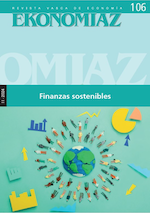Jorge Fernández
Abstract
New public-private partnership schemes (also involving philanthropic foundations and other third-sector entities) may help to overcome the financing barriers faced by many types of projects focused on achieving social and environmental net positive impacts. This article explores the role that policy makers can play, through specific policies, to foster innovative collaboration and governance schemes across agents that help to reduce the green financing gap. A mixed non-systematic literature review and case study analysis (focusing on the experience in novel sustainable finance schemes in the region of Greater Manchester) are used to extract lessons and draw policy implications. An active role can be played by governments and public institutions to facilitate the financing of hard-to-fund innovative sustainability projects and activities via creating adequate conditions in the green financing market that induce innovative ways of public-private collaboration, such as the new 3P and 4P schemes.













